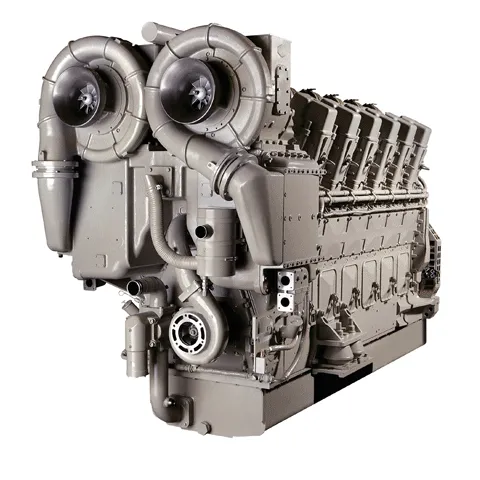Improve Your Fleet with Engines For Africa's Option
Wiki Article
A Full Overview to Selecting the Right Engine for Your Project
Selecting the proper engine for your task is a critical choice that can considerably influence its total success. It is imperative to thoroughly specify your job requires, assess efficiency demands, and think about user-friendliness alongside other essential variables. In addition, understanding the area support available and scrutinizing price effects can further improve your choice. Each of these aspects plays a critical duty in ensuring that your selected engine not only fulfills immediate objectives however also straightens with lasting goals. As we discover these factors to consider, you might discover that the nuances of each aspect expose even more than initially prepared for.Specify Your Project Needs
Defining your project needs is an important action in choosing the suitable engine for effective implementation. A detailed understanding of your project's objectives will lead you in recognizing the capabilities and functions needed from an engine. Begin by laying out the scope of your job, consisting of the wanted functionality, target market, and the particular outcomes you aim to achieve.
Following, consider the technological demands that align with your job objectives. This consists of examining the compatibility of the engine with existing systems, as well as the programming languages and structures that will certainly be utilized. Additionally, analyze the degree of scalability called for to fit future growth or adjustments popular.
Budget plan constraints likewise play a vital duty in defining your job requires. Establish a clear economic structure to guide your decision-making process, guaranteeing that the engine picked fits within your budget plan while offering the necessary capability.
Evaluate Performance Requirements

Engines that support straight scaling are usually more suitable for larger applications. Furthermore, assess the engine's efficiency under different problems, such as peak usage situations, to guarantee it fulfills your integrity requirements.
Consider Simplicity of Use
While technological requirements are important, the ease of usage of an engine can dramatically impact the advancement procedure and general task success. An user-friendly user interface, clear documents, and structured operations can significantly minimize the understanding curve for programmers, enabling them to concentrate on imagination and problem-solving rather than grappling with complicated tools.When evaluating an engine's convenience of use, think about the onboarding experience. A well-structured introduction, total with tutorials and example jobs, can assist in a smoother shift for brand-new customers. Furthermore, the quality and comprehensiveness of the engine's paperwork play a crucial duty; detailed guides and API references can encourage programmers to repair and carry out features effectively.
One more element to take into consideration is the engine's customization capabilities. An engine that permits very easy adjustments can be a lot more straightforward, as designers can tailor it to fit their particular needs without considerable trouble. read here Finally, examine the workflow integration with devices and systems you currently make use of. A natural environment can boost performance and reduce friction during the growth process. Ultimately, selecting an engine that prioritizes simplicity of usage can result in a much more delightful and productive development experience.
Assess Area and Support
The strength of an engine's neighborhood and assistance network can greatly affect a developer's experience and success. A vibrant neighborhood frequently indicates a riches of common knowledge, resources, and repairing assistance that can boost your task's growth procedure. When analyzing an engine, take into consideration the size and task degree of its community. Bigger areas generally offer much more discussion forums, tutorials, and third-party plugins, enabling programmers to find services much more successfully.In addition, assess the schedule of official support channels. Dependable documentation, responsive consumer assistance, and routine updates are necessary for attending to technological issues and keeping your task on track. Engines For Africa. Active neighborhoods likewise cultivate cooperation, giving possibilities for networking and comments, which can be important, particularly for independent developers or little groups
Additionally, explore the existence of community-run occasions, such as hackathons or meetups. These celebrations can improve your understanding of the engine while linking you with experienced users and potential collaborators. In summary, a durable area and support system not just simplify advancement but also produce an atmosphere favorable to learning and development, eventually improving the probability of your project's success.
Compare Price and Licensing Alternatives
Spending plan considerations play an important role in choosing the right engine for your task, as the cost and licensing choices can significantly influence both temporary expenses and long-lasting practicality. Engines For Africa. Various engines supply differing pricing frameworks, which can include one-time acquisition costs, subscription designs, or revenue-sharing contracts based upon your project's profits
Licensing choices additionally vary considerably. Some engines are open-source, offering flexibility and community-driven assistance, while others might need exclusive licenses that limit usage and distribution. Understanding the ramifications of each licensing model is essential, as it impacts possession rights, future scalability, and prospective lawful commitments.
Conclusion
Finally, picking the ideal engine for a job necessitates a linked here detailed assessment of specified job requirements, efficiency requirements, simplicity of use, area support, and cost considerations. By methodically dealing with these crucial factors, decision-makers can ensure placement with both future and present job needs. A knowledgeable selection inevitably enhances the possibility of job success, making it possible for effective resource allowance and optimizing possible end results within helpful hints the specified budgetary restrictions.Selecting the suitable engine for your job is an important choice that can substantially impact its overall success.Defining your job requires is an important action in picking the ideal engine for effective implementation. A comprehensive understanding of your job's objectives will lead you in identifying the functions and abilities needed from an engine.As soon as you have a clear understanding of your job requires, the next action is to evaluate the performance demands of the engine.In final thought, selecting the ideal engine for a job requires a complete assessment of defined task demands, performance requirements, ease of usage, neighborhood assistance, and cost considerations.
Report this wiki page